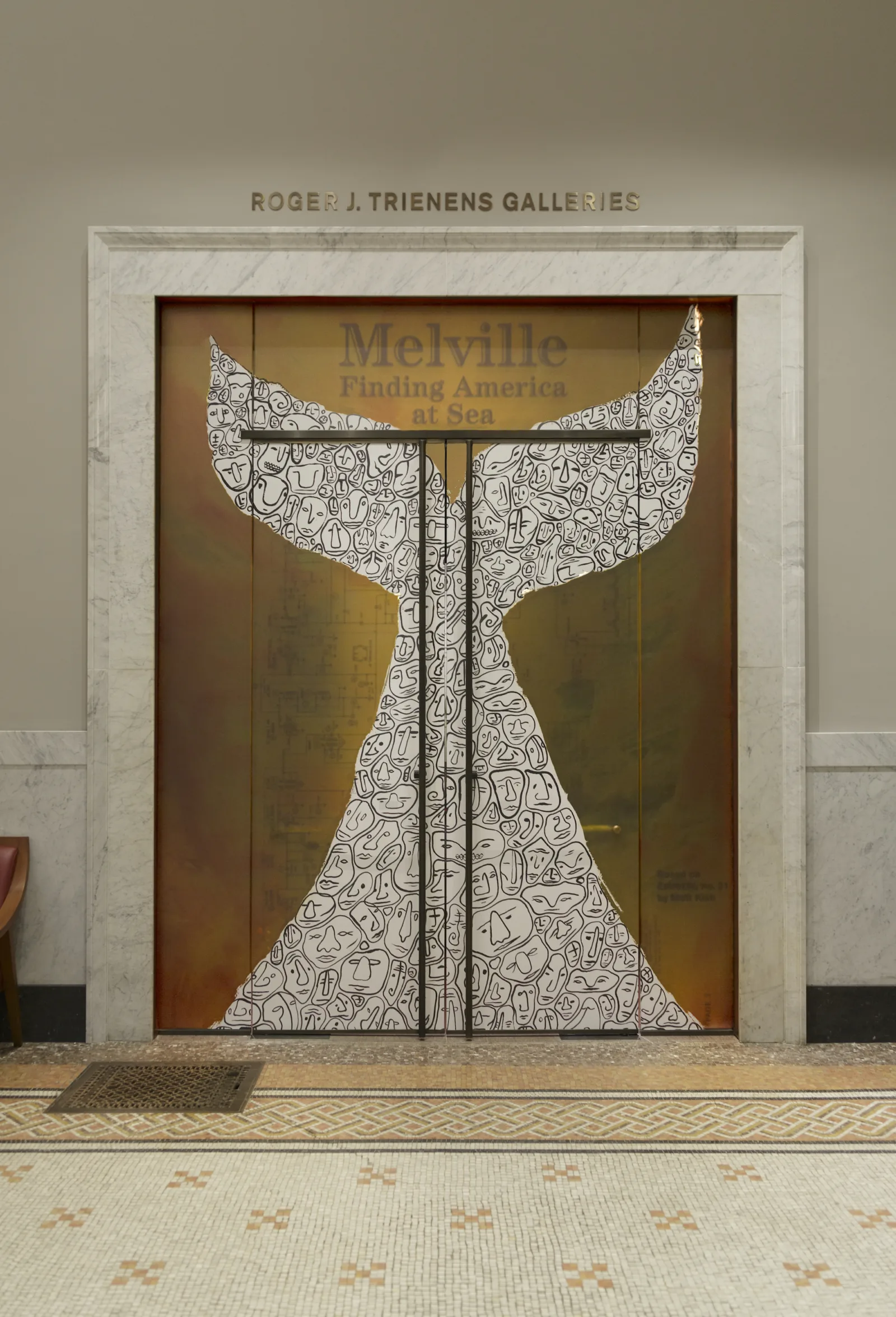This year marks the 200th anniversary of the birth of Herman Melville. To commemorate the author’s bicentenary, the Newberry will unveil a new exhibition January 18 devoted to Melville’s works and legacy. Displaying an array of items drawn from the Newberry’s collection, the exhibition traces the arc of Melville’s life and afterlife, from the marginal place in American letters he occupied during his lifetime to his current position at the center of the American literary canon.
Melville: Finding America at Sea, features a wide range of Melvilleana, including a first edition of Moby-Dick; a rare copy of Melville’s poetry; a letter written by the author himself; maps and illustrations; and modern versions of his work, ranging from an emoji translation of Moby-Dick to Orson Welles’s adaptation for the stage.
The exhibition, like all Newberry exhibitions, is free and open to all.
An exciting series of public programs – including a marathon reading of Moby-Dick January 19-20 – will coincide with the exhibition throughout the winter and spring.
According to Will Hansen, Curator of Americana at the Newberry and the exhibition’s curator, Melville provides a window into American history and culture, past as well as present.
"Melville came of age during one of the most turbulent eras of American history, and his literary work reflected – and reflected upon – many of the great issues of the day. Melville: Finding America at Sea invites viewers to consider Melville’s literary output in relation to themes like democracy, spirituality, Indigeneity, morality, sexuality, labor, nature, and human consciousness. At the same time, the exhibition explores the ways in which Melville’s literary creations continue to influence contemporary artists and readers.”
Items featured in the exhibition are drawn primarily from the Newberry’s Herman Melville Collection, which gathers together over 6,000 items related to the author and his work. The core of the collection is the personal library of Harrison Hayford (1916-2001), who served as general editor of the Northwestern-Newberry Library Edition of The Writings of Herman Melville, a definitive, 15-volume edition of the writer’s work. Since curators acquired Hayford’s library in 1965, the collection has gradually grown and is now one of the largest holdings of Melville-related material in the world.
The exhibition will kick off with a 25-hour marathon reading of Moby-Dick. Beginning Saturday, January 19 at noon and ending the following day at 1 pm, a series of reader-performers ranging from scholars and journalists to writers and actors will read the entirety of Melville’s masterpiece aloud, one chapter at a time. The event is free and open to the public, and visitors are invited to stop by to hear their favorite chapter or to settle in for the long haul.
Though best known for Moby-Dick, Melville authored a wide range of fictional and non-fictional works, from books of travel literature and short stories to novellas and collections of poetry. One of the goals of the exhibition is to draw attention to the diversity of Melville’s literary production.
"Most people justifiably associate Melville with Moby-Dick, but his output was incredibly varied, as the exhibition is designed to show,"said Hansen. "Alongside first editions of Moby-Dick, we’re featuring travel books like Omoo and Typee and works like Battle-Pieces, a collection of poetry on the Civil War, as well as very rare works like Timoleon, a privately printed collection of poems that exists in just 25 copies.”
Melville: Finding America at Sea will run from January 18 to April 6 and is sponsored by Elizabeth Amy Liebman and The Gladys Kreible Delmas Foundation.
